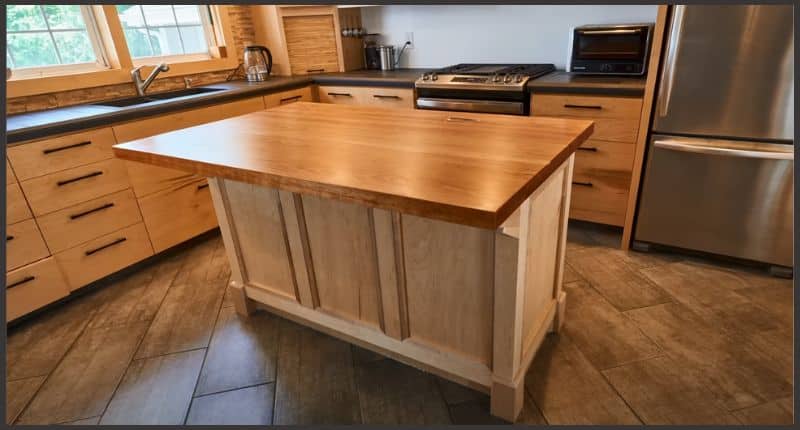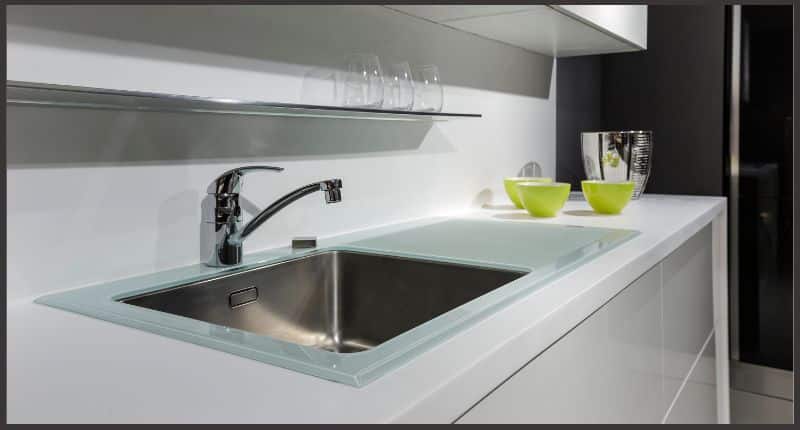If you’ve ever found yourself struggling to handle a kitchen knife with finesse, you’re not alone. Knife skills are an essential aspect of any successful cook’s repertoire, as they not only ensure safety but also contribute to efficient and precise cooking. Whether you’re a novice in the kitchen or an experienced home chef, honing your knife skills can greatly enhance your culinary prowess. In this article, we will explore various techniques and practices to help you improve your kitchen knife skills. From holding the knife correctly to gaining mastery over different cutting techniques, this guide will equip you with the knowledge and confidence to excel in the culinary domain.
How Can I Improve My Kitchen Knife Skills?
Whether you’re a novice in the kitchen or a seasoned home cook, improving your kitchen knife skills is essential for enhancing your culinary experience. A sharp, well-handled knife can make a world of difference in your cooking process, allowing you to slice, dice, and chop ingredients like a professional chef. Not only will this save you time, but it will also improve the quality and presentation of your dishes. In this article, we will explore various tips and techniques to help you master the art of knife skills and elevate your cooking game.
The Role of Proper Knife Skills
Before diving into the specifics, it’s crucial to understand the importance of knife skills in the kitchen. A chef’s knife is arguably the most versatile tool in your culinary arsenal. With precision and control, you can transform raw ingredients into pieces of art. Proper knife skills not only enhance your efficiency but also ensure consistency in cooking and prevent accidents.
Let’s now explore some practical tips and techniques that you can incorporate into your kitchen routine to improve your knife skills:
Invest in High-Quality Knives
The foundation of excellent knife skills lies in owning a high-quality set of knives. While it can be tempting to settle for budget-friendly options, investing in a reliable, well-made knife will pay dividends in the long run. Look for knives that have a comfortable grip, a durable blade, and a well-balanced weight. A knife that feels good in your hand will make it easier to control and maneuver.
Maintain Sharpness
A sharp knife not only makes your cutting tasks more efficient but also reduces the risk of accidents. Dull blades require extra force, increasing the chances of a slip. Regularly sharpening your knives or taking them to a professional sharpener will ensure that they are always in top condition. Additionally, proper knife storage, such as using a knife block or a magnetic strip, will help maintain their sharpness for longer.
Learn Different Knife Techniques
Mastering various knife techniques will give you the versatility to handle a wide range of ingredients. Whether you’re mincing garlic, julienning carrots, or chiffonading basil, each technique requires a specific hand motion. Practice these techniques individually, focusing on proper hand placement and motion. With time and repetition, they will become second nature, allowing you to effortlessly slice and dice ingredients with precision.
Hold the Knife Properly
The way you hold your knife greatly impacts your control and maneuverability. The most common grip is called the pinch grip, where you pinch the blade between your thumb and index finger while wrapping the remaining fingers around the handle. This grip provides stability, allowing you to guide the knife with precision. However, it’s important to find a grip that feels comfortable for you. Experiment with different grips until you find one that suits your hand size and cooking style.
Practice Knife Safety
Knife safety should always be a priority in the kitchen, regardless of your skill level. Always keep your eyes on the knife and avoid distractions while cutting. When moving around the kitchen, carry the knife with the blade pointing downwards. When not in use, store your knives properly in a designated location, away from the reach of children. By following these safety precautions, you can minimize the risk of accidents and enjoy a worry-free cooking experience.
Utilize Cutting Boards
A good cutting board is essential for effective knife work. Choose a board that is sturdy, has a non-slip base, and provides ample space for maneuvering your ingredients. Avoid using glass or ceramic boards, as they can quickly dull your knives. Instead, opt for wooden or plastic cutting boards that are easy to clean and gentle on the blades. Remember to secure the cutting board by placing a damp towel underneath to prevent it from sliding around.
Tackle Different Ingredients
Learning to handle specific ingredients properly is a crucial aspect of improving your knife skills. It’s essential to understand which techniques work best for different types of food. For example, delicate herbs like cilantro require a gentle chopping motion, while denser vegetables like potatoes may require more forceful cuts. Experiment with various ingredients and familiarize yourself with their unique characteristics to develop a better understanding of how to handle them effectively.
Use the Right Knife for the Job
Having a selection of different knives will make your kitchen endeavors much smoother and more enjoyable. Each knife has its own purpose, whether it’s a chef’s knife for general cutting, a paring knife for intricate work, or a serrated knife for slicing bread. Using the right knife for the job ensures optimal results and reduces the strain on both you and your knives.
Practice Consistently
Like any skill, mastery of knife skills takes practice. Carve out some time each week to work on improving your techniques. Challenge yourself by trying new recipes that require different cutting styles. Practice specific techniques repeatedly until you feel comfortable and confident in your abilities. Over time, you’ll notice your skills progressing, and you’ll become more efficient in the kitchen.
Seek Guidance from Experts
While self-learning is valuable, seeking guidance from experts can significantly accelerate your progress. Watch tutorial videos from professional chefs who specialize in knife skills. Attend cooking classes or workshops where you can receive hands-on guidance and personalized feedback. Engage with online communities and forums dedicated to cooking to connect with like-minded individuals who can share their experiences and advice.
Conclusion
Improving your kitchen knife skills is a journey that requires patience, practice, and perseverance. By investing in high-quality knives, maintaining sharpness, mastering various techniques, and practicing consistently, you can enhance your culinary repertoire. Remember to prioritize safety, utilize the right tools, and seek guidance from experts. With time and dedication, you’ll be slicing and dicing like a pro, transforming your cooking experience and impressing friends and family with your newfound skills. So, put on your apron, grab your knives, and embark on this exciting culinary adventure!

Photo by Naomi Hébert on Unsplash
Additional Guide
To improve your kitchen knife skills, it’s important to have the right tools and techniques. Check out these articles for more information:
1. [How to Make a Small Kitchen Look Bigger](https://onekitchenreview.com/how-to-make-a-small-kitchen-look-bigger/): Discover clever tips and tricks to maximize your kitchen space and create a more efficient cooking environment.
2. [How Do I Start a Small Kitchen?](https://onekitchenreview.com/how-do-i-start-a-small-kitchen/): Learn how to effectively plan and organize a small kitchen, ensuring you have everything you need within reach while optimizing functionality.
3. [Wood Kitchen Cabinet: 10 Best Ideas for Stylish and Functional Storage](https://onekitchenreview.com/wood-kitchen-cabinet-10-best-ideas-for-stylish-and-functional-storage/): Explore various wood kitchen cabinet options that not only offer ample storage space but also enhance the aesthetic appeal of your kitchen.
Implementing the tips and ideas from these articles will not only improve your kitchen’s functionality but can also create a more enjoyable cooking experience. Happy chopping!
FAQs: How can I improve my kitchen knife skills
1. How can I improve my kitchen knife skills?
To improve your kitchen knife skills, here are a few tips:
- Always use a sharp knife: A dull knife requires more force and can be dangerous. Keep your knives sharp and honed for precise cuts.
- Practice proper grip: Hold the knife with a firm, but not tight, grip. Your thumb and forefinger should grip the blade just above the handle for control.
- Master basic knife techniques: Learn and practice basic knife techniques like the chop, slice, and mince. Focus on proper hand and blade position for safety and efficiency.
- Invest in quality knives: High-quality knives can make a significant difference. Consider investing in a few essential knives like a chef’s knife, paring knife, and serrated knife.
- Take a knife skills class or watch tutorials: Consider attending a cooking class or watching instructional videos online to learn proper knife skills and techniques from experts.
2. How should I hold a kitchen knife for maximum control?
To hold a kitchen knife for maximum control, follow these steps:
- Grip the handle: Hold the knife handle firmly but not too tightly.
- Place your index finger: Rest your index finger along the spine of the knife for stability and control.
- Curl your other fingers: Curl your remaining fingers around the handle, forming a secure grip.
- Position your thumb: Position your thumb on the side of the blade, just above the handle. This provides stability and control.
- Practice with different grips: Experiment with different grips to find what feels most comfortable and allows for precise control.
3. How often should I sharpen my kitchen knives?
The frequency of sharpening your kitchen knives depends on usage. As a general guideline:
- Regular home cooks: Sharpen your knives every 3-6 months, depending on use.
- Professional cooks or heavy home use: Sharpen your knives every 1-2 months.
However, keep in mind that honing your knives regularly (using a honing steel) can help maintain their sharpness in between sharpenings.
4. Are there any safety tips I should follow while using kitchen knives?
Yes, here are some important safety tips when using kitchen knives:
- Always cut on a stable surface: Use a cutting board that won’t slip during use.
- Pay attention while cutting: Avoid distractions and focus on the task at hand.
- Keep your knives sharp: A dull knife is more dangerous than a sharp one. A sharp knife will cut more easily and require less force.
- Use the correct knife for the task: Ensure you’re using the appropriate knife for the specific slicing, chopping, or dicing job.
- Store knives properly: Keep your knives in a knife block or sheath to prevent accidental cuts when reaching for them.


